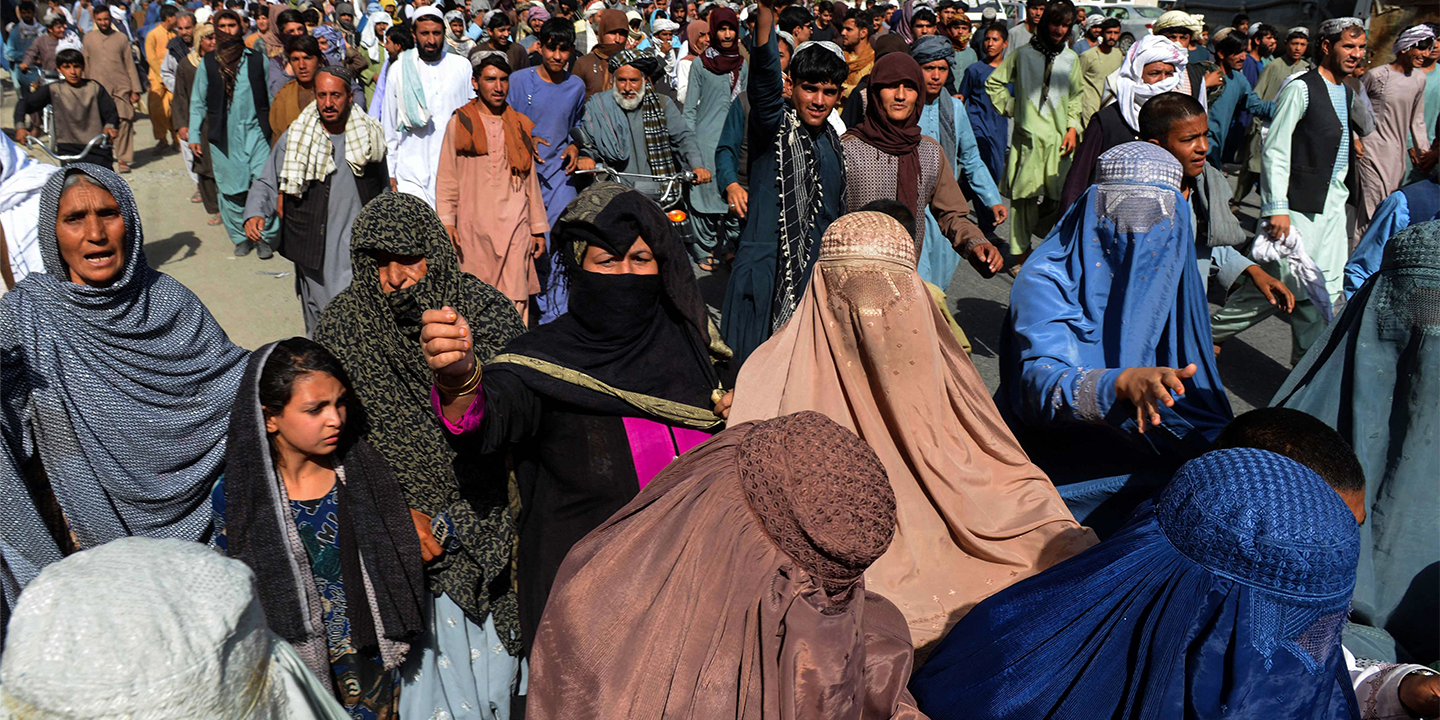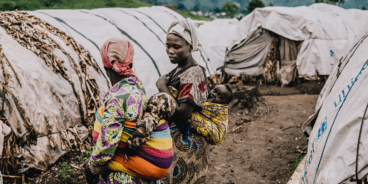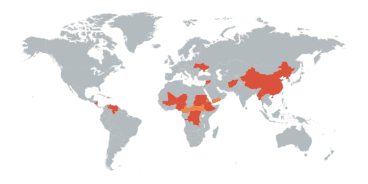

Atrocity Alert No. 270: Afghanistan, Yemen and China
Atrocity Alert is a weekly publication by the Global Centre for the Responsibility to Protect highlighting situations where populations are at risk of, or are enduring, mass atrocity crimes.
HUMAN RIGHTS ABUSES INTENSIFY IN AFGHANISTAN
Consistent reports of human rights violations and abuses have emerged from Afghanistan since the Taliban seized control of the country on 15 August. Earlier this week the UN High Commissioner for Human Rights, Michelle Bachelet, highlighted that “the country has entered a new and perilous phase, with many Afghans profoundly concerned for their human rights, particularly women, ethnic and religious communities.”
Following the capture of Kabul, the Taliban declared a “general amnesty” for those who worked for the previous government, promising no reprisals. However, both High Commissioner Bachelet and the UN Assistance Mission in Afghanistan have reiterated that the Taliban’s conduct thus far has contradicted these public pledges.
The UN has received credible reports of reprisal killings of former Afghan security personnel, arbitrary detention and arrests of officials who worked for the previous government, house-to-house searches and seizure of property. There has also been growing harassment and intimidation of UN national staff, while some UN offices have been ransacked.
Meanwhile, protests against Taliban rule continue to take place across Afghanistan, which the Taliban have responded to with increasingly violent force, including the reckless use of live ammunition, batons and whips to disperse demonstrators. On 7 September two people were killed and seven wounded when Taliban fighters opened fire on a protest in Herat.
Although the Taliban declared conditional assurances regarding women’s rights, women have been steadily excluded from the public sphere and targeted. In some regions, women are facing restrictions on their fundamental human rights, including freedom of movement, employment and access to education. The Taliban have also reportedly dismantled government departments dealing with women’s affairs across the country and targeted women’s civil society organizations.
During two decades of war Taliban forces continually violated international law and committed war crimes. The international community must now safeguard the human rights and humanitarian needs of ordinary Afghans who face the combined threat of Taliban repression, economic collapse and widespread hunger. States must also urge Taliban officials to fully commit to upholding all of Afghanistan’s obligations under international law.
The UN Human Rights Council, which commenced its 48th regular session on 13 September, should heed the calls of the High Commissioner and civil society organizations and establish a dedicated mechanism to monitor the human rights situation in Afghanistan.
WAR AND ATROCITIES CONTINUE UNABATED IN YEMEN
Since early September fighting has intensified in Marib, Yemen, due to an ongoing Houthi offensive that has displaced thousands of civilians. Indiscriminate missile and artillery fire has regularly hit markets, displacement camps and other civilian objects in and around Marib City causing dozens of casualties. Hundreds of coalition airstrikes and fierce ground fighting have also taken place across the governorate, particularly in Sirwah and Rahabah districts.
The escalation in Marib coincides with ongoing armed hostilities throughout Yemen, with at least 49 active frontlines across the country. Over 1,300 civilians have been killed or maimed so far this year.
Yemen’s ongoing war has contributed to the “unceasing suffering” of civilians, according to the UN’s Group of Eminent Experts (GEE) on Yemen, who presented their latest report to the Human Rights Council on 14 September. The GEE report highlighted a pattern of international law violations perpetrated by all parties to the conflict that likely amount to war crimes and crimes against humanity. The GEE particularly identified ongoing indiscriminate airstrikes and shelling, arbitrary detention, enforced disappearances, grave violations against children, humanitarian restrictions, sexual and gender-based violence, torture, and persecution, as well as specific violations against journalists, human rights defenders, minorities, migrants and internally displaced persons.
Kamel Jendoubi, Chairperson of the GEE, said that, “the climate of fear, lawlessness and impunity for all those living in Yemen has worsened further despite political agreements and high-level discussions between key actors… In the midst of the current intolerable situation, only genuine political will on the part of the parties to the conflict and their backers, but also on the part of the international community, can end Yemen’s suffering.”
After six years of unrelenting war and atrocities, the UN Secretary-General’s new Special Envoy for Yemen, Hans Grundberg, should prioritize the human rights dimension of the conflict and push for meaningful negotiations aimed at ending the war. During the current session, the Human Rights Council should renew the GEE with a multi-year mandate and establish a mechanism to pave the way towards justice and accountability.
UYGHUR TRIBUNAL INVESTIGATES GENOCIDE IN XINJIANG, CHINA
On Monday, 13 September, the final session of the Uyghur Tribunal – an “independent people’s tribunal” to investigate systematic human rights abuses in the Xinjiang Uyghur Autonomous Region (XUAR) of China – ended in London. During the tribunal, Uyghurs and other Muslim minorities from China told their personal stories of surviving detention, rape, torture and forced sterilization.
During the four days of public hearings, nearly 40 witnesses and experts provided testimony. On the final day, an ethnic Kazakh woman, Gulzire Alwuqanqizi, spoke about her 14 months of detention, describing being forced to bathe other female detainees who were subsequently tied to beds and raped. She was also involuntarily sterilized. Uyghur researcher and investigative journalist, Bahram Sintash, provided evidence of the destruction of Uyghur mosques, shrines and other cultural heritage sites by the Chinese authorities. According to Sintash, up to 15,000 mosques and other cultural sites were demolished around XUAR as of October 2019. The number has increased since then.
An estimated 1 million Uyghurs and other Muslim minorities have been detained by the authorities in XUAR without formal charges or due process. Other abuses include forced labor, severe restrictions on religious practice, separation of Muslim children from their families, and forced abortions and sterilization.
While the Uyghur Tribunal does not have any official government backing or power to hold perpetrators criminally accountable, the evidence gathered may compel greater international awareness and action. The Uyghur Tribunal is expected to announce its final judgement by the beginning of 2022. The Chinese government has attempted to publicly discredit the tribunal and its participants.
At Monday’s opening of the 48th session of the UN Human Rights Council, the High Commissioner for Human Rights, Michelle Bachelet, lamented that her efforts to gain access to Xinjiang over the past three years have been unsuccessful, adding that her office was now finalizing a report on the situation. The Council should now hold a special session and mandate a mechanism to investigate and report on systematic violations of human rights in the Xinjiang region.

